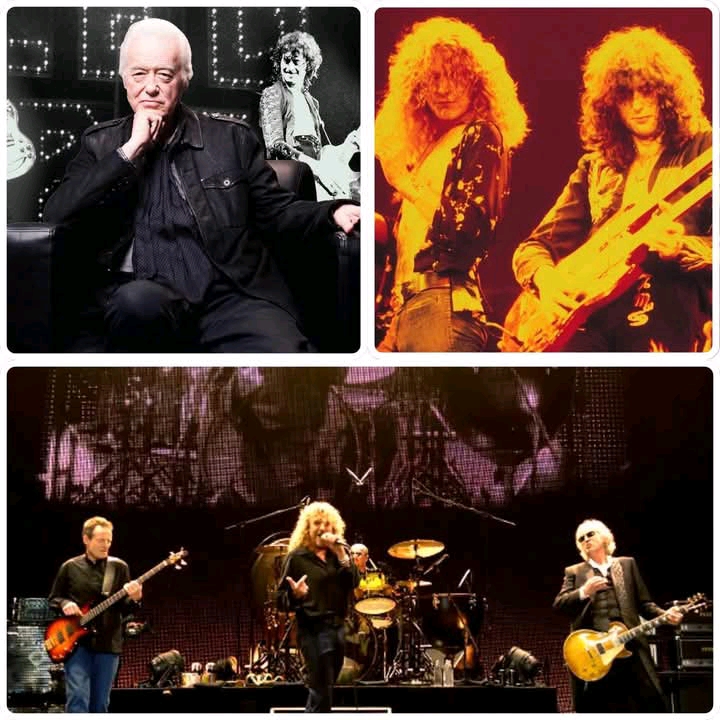Why Jimmy Page Couldn’t Bring Led Zeppelin Back Together: “The Expectation Is Too Great”
Few bands in the history of rock and roll command the mystique, reverence, and legacy that Led Zeppelin does. From their earth-shattering debut in 1969 to the somber, sudden dissolution of the band following drummer John Bonham’s tragic death in 1980, Led Zeppelin built a catalog of music and a reputation that became legend. Their influence transcends generations, and their reunion has long remained the holy grail for fans and the music industry alike.
But despite countless rumors, offers of astronomical sums of money, and periodic public statements suggesting hope, a full Led Zeppelin reunion never truly materialized. And the person most associated with this decision—guitarist and band co-founder Jimmy Page—has offered a compelling reason: *“The expectation is too great.”*
### The Burden of a Legacy
Led Zeppelin isn’t just a band. It’s a cornerstone of modern rock mythology. Songs like “Stairway to Heaven,” “Kashmir,” and “Whole Lotta Love” are not merely tracks—they’re sacred artifacts. To attempt to reassemble that kind of magic, especially without Bonham, would be to court both adoration and scrutiny at an impossible level.
Jimmy Page has often acknowledged this pressure. In interviews over the years, he’s expressed admiration for his former bandmates and a deep love for the music they created together. But he’s also keenly aware that attempting to recreate the Zeppelin experience in the 21st century might not meet the impossibly high expectations that decades of nostalgia have built.
“People don’t just want a concert,” Page once noted. “They want *the experience*. The same fire, the same feeling, the same power. But that moment in time is gone. We were young, we were different. We were living that music as it was being made.”
### The 2007 O2 Reunion – A Lightning Bolt in a Bottle
The one modern moment that came close to satisfying the Zeppelin itch was the legendary 2007 one-off reunion at London’s O2 Arena. With Jason Bonham, son of John, behind the kit, the surviving members—Page, Robert Plant, and John Paul Jones—delivered a ferocious, critically acclaimed performance.
Tickets were so in-demand that over 20 million people reportedly applied in a lottery system for just 20,000 seats. The band played with a fire and precision that surprised even the most cynical fans. For many, it was proof that Zeppelin *could* rise again.
Yet even after that magical night, a full reunion tour never followed. The reason? Diverging ambitions, complicated band dynamics—and again—the weight of expectation.
### Robert Plant: The Reluctant Frontman
A significant barrier to reunion has long been Robert Plant himself. Unlike Page, who has consistently shown interest in a reunion, Plant has been more reticent. He’s followed a different artistic path, collaborating with artists like Alison Krauss and exploring Americana and folk genres far removed from Zeppelin’s bombastic sound.
Plant has often expressed that reuniting Zeppelin would be like trying to recapture something that only truly existed in a specific moment in time. “You can’t just go back,” he said in one interview. “You can’t be the same people you were back then.”
This philosophical difference between Plant and Page has often been cited as one of the primary reasons why the reunion never materialized into something larger.
### John Bonham: The Irreplaceable Element
Even beyond the living members, the absence of John Bonham looms large. Bonham wasn’t just a drummer—he was the heartbeat of the band. His unique style, combining sheer force with intricate technique, helped define Led Zeppelin’s sound.
Jimmy Page has never been shy about acknowledging Bonham’s irreplaceability. While Jason Bonham proved himself to be an admirable and emotionally powerful stand-in during the O2 concert, Page has suggested that something essential was still missing. “We were four parts of one engine,” he once said. “Without one part, it’s not the same vehicle.”
### The Emotional Toll and the Artistic Standard
For Page, it’s not just about the fear of not living up to the past—it’s about protecting it. In a world full of reunion tours and nostalgia acts, Led Zeppelin stands almost alone in its refusal to dilute its brand for profit. Every decision Page has made has been about preserving the legacy, not extending it for the sake of public pressure or financial reward.
In many ways, this refusal is the ultimate act of respect—for the music, for the fans, and for the band itself.
### Final Words
So why couldn’t Jimmy Page bring Led Zeppelin back together?
Because some things are too sacred.
Because trying to match the weight of the past would almost certainly result in falling short.
Because, as Page put it, *“The expectation is too great.”*
And perhaps, in the end, that’s exactly how it should be. Led Zeppelin came, conquered, and exited in a blaze of immortal glory. Rather than tarnishing that with a lukewarm revival, they’ve left behind a pristine legacy—untouched, unbroken, and forever enigmatic.
